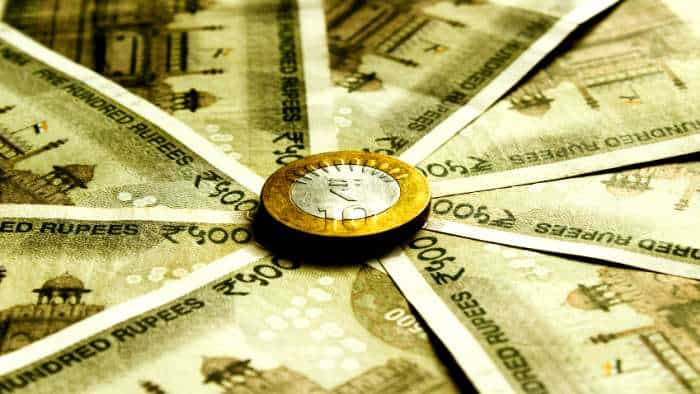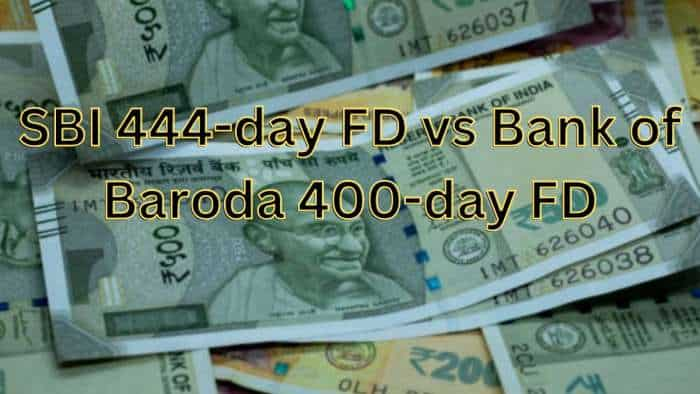Axis Bank in-house economists don't see rate hike in policy review on Friday: Chief Economist Saugata Bhattacharya
The central bank's Monetary Policy Committee has not changed the key policy rates since May 22, 2020, when it had slashed the interest rate to a historic low of 4 per cent in an off-policy cycle to perk up demand.

Economists at private sector lender Axis Bank do not see the Reserve Bank hike key rates at the policy review later this week to contain mounting inflationary pressures, even though the market as a whole has already priced in a 10-15 bps rise in the reverse repo, according to its Chief Economist Saugata Bhattacharya.
The central bank's Monetary Policy Committee has not changed the key policy rates since May 22, 2020, when it had slashed the interest rate to a historic low of 4 per cent in an off-policy cycle to perk up demand.
The August review was the seventh straight meeting when it maintained the status quo of keeping the repo at a historic low of 4 per cent and the reverse repo at 3.35 per cent. This was despite retail inflation breached the Reserve Bank of India's (RBI) upper tolerance limit of 6 per cent in the previous two months considering the two breaches as transitory.
There is too much liquidity in the system that is around Rs 8.5 lakh crore now, he said adding that pressure is rising on prices.
"So, it won't be surprising if the RBI does something to suck out excess liquidity in its bid to contain inflationary pressures, as there are more upside risks to inflation now than in recent months, given the runaway commodity prices," he added.
Yet, Bhattacharya retained the March retail inflation target at 5.2 per cent and gross domestic product (GDP) growth at 9.5 per cent for the year.
Price pressures are rising from multiple sources now, given the fact that rural demand has relatively been stable even during the second wave of the pandemic. Urban demand is slowly inching back, and runaway commodity prices are adding to the problem.
"Our house view is of the RBI holding the rates at the Friday review, even though the market has already priced in a 10-15 bps (basis points) hike in the reverse repo rate to suck out extremely high liquidity as part of the normalisation process," Bhattacharya told reporters on Tuesday.
"I see a 50 per cent chance of a marginal hike in the repo rate because such a move will be timely and will help avoid a shock to the market," he said.
Bhattacharya said the way price pressures are building, the RBI needs to suck out excess liquidity somehow and at the earliest.
See Zee Business Live TV Streaming Below:
"If it does that without inflicting too much shock to the markets but with baby steps, it will serve both the purposes, he said adding that the system is flushed with more than Rs 8.5 lakh crore on a weekly basis, as loan demand is still missing except for mortgages," Bhattacharya added.
On the risks to the market and economy, he said the biggest external risks are a serious slowdown in China and the rising crude and other commodity prices.
On the impact of the normalisation on the bond yields and the resultant impact on government borrowing, he said the house view is that the benchmark yields will scale to 6.25-6.30 per cent by March unless the government borrows less than the budgeted Rs 12 lakh crore, "which looks almost impossible".
Get Latest Business News, Stock Market Updates and Videos; Check your tax outgo through Income Tax Calculator and save money through our Personal Finance coverage. Check Business Breaking News Live on Zee Business Twitter and Facebook. Subscribe on YouTube.
RECOMMENDED STORIES

SBI Latest FD Rates: This is what you can get on Rs 10 lakh investment in 1-year, 3-year, and 5-year tenures

Top 7 Small Cap Mutual Funds With Best SIP Returns in 10 Years: Rs 11,111 monthly SIP investment in No 1 fund has sprung to Rs 57,30,613; know about others too

SBI 444-day FD vs Bank of Baroda 400-day FD: What will be maturity amounts on Rs 6 lakh and Rs 10 lakh investments for general and senior citizens?
07:40 PM IST









 No interest rate cut in RBI's February policy review, or anytime in FY26: Axis Bank chief economist Neelkanth Mishra
No interest rate cut in RBI's February policy review, or anytime in FY26: Axis Bank chief economist Neelkanth Mishra SEBI sends notices to Axis Bank, Axis Securities, Axis Capital over Max Life deal; more pain ahead for investors?
SEBI sends notices to Axis Bank, Axis Securities, Axis Capital over Max Life deal; more pain ahead for investors? Axis Bank shares zoom up 4% despite weak Q2; Here's what global brokerages suggest
Axis Bank shares zoom up 4% despite weak Q2; Here's what global brokerages suggest Axis Bank Q2 preview: PAT likely to increase 8.5% YoY; asset quality may be affected marginally
Axis Bank Q2 preview: PAT likely to increase 8.5% YoY; asset quality may be affected marginally